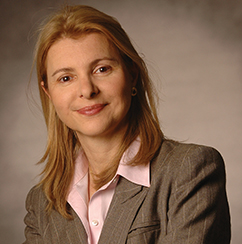Sylvia Brasil Coutinho thought that women filling senior roles at four of the biggest Brazilian private sector banks was something to celebrate – and build on. The number stood at zero until her appointment as the chief executive of UBS's local operations in June 2013, she says. In 2018, Ms Brasil Coutinho contacted three peers – Maria Silvia Bastos, CEO of Goldman Sachs Brazil until March 2019 and now chair of its advisory board; Sandrine Ferdane, CEO and country head of BNP Paribas in Brazil; and Deutsche Bank’s Brazil boss Maite Leite – to form a joint project to prepare women for a career in financial services.
“I thought that the four of us together could have quite a [strong impact],” says Ms Brasil Coutinho.
Equality in reverse
A strong impact appears to be what is needed to change a country that has gone against the global trend. Although moderately, the world average gender gap has begun to shrink, according to data from the World Economic Forum Gender Gap Index (the index considers economic participation of women, political empowerment, education and health measurements). But Brazil is moving in the opposite direction – its gender gap stood slightly above the global average in 2018 but had widened from six years earlier.
Consultancy Oliver Wyman notes how only 8% of senior executives in Brazil's 10 largest banks are women, and occupy only 10% of seats in the boardroom. Entry-level positions are more balanced, with 55% of junior analysts being female.
Furthermore, women working in investment banking, which represents only part of the workforce of the large banking groups studied in the Oliver Wyman survey, face specific gender hurdles. In addition to the general attrition in the career progression of women, investment banking has a unique challenge in that it continues to be perceived as a 'male activity', one which women would choose to avoid due to a lack of female companions, according to Ms Ferdane.
“[Compared with the past there are] more women in sales and in product structuring, but you don’t see that in trading... because they don’t [want] to be the only woman [in the team],” she says, adding that the trading culture is not too different from that found in other divisions.
“The business [of investment banking] still has a [poor] image,” says Ms Bastos at Goldman Sachs, in the sense that many men and women assume “you have to work 24 hours a day and that it is difficult to combine work with family. But this is changing and not just because companies are understanding the value of diversity.” She adds that as men accept more responsibility at home, this will eventually result in more women taking on demanding jobs. Goldman Sachs does not disclose gender data for its local operations but beside Ms Bastos, there is only one other woman in the seven-person management committee.
And even at UBS, where Ms Brasil Coutinho has created a board that is split evenly between women and men, such challenges persist. “My board is 50/50 [men to women] – no board in Brazil has the same ratio, I’m proud to say,” she notes. However, she adds that this ratio is skewed towards higher numbers of men at entry level while, overall, less than one-third of the staff at UBS in Brazil is female.
A fair start
With such disparities in mind, as well as with the general gender imbalance across economic sectors, the programme the four bank bosses created, Dn’A Women, aims to attract female graduates to the financial sector by providing technical and leadership training for university students who are set to graduate in 2021 or 2020 in São Paulo state. So far there have been 800 applications for the 60 available spaces, according to Ms Brasil Coutinho.
The four-month programme will be held in UBS and Goldman Sachs offices and will provide group coaching and mentoring. It is based on an initiative that Goldman Sachs already had in the works, according to Ms Bastos, giving credit for its conception to the vice-president of the bank’s human capital management team, Maria Cristina Sampaulo, who is also a board member of non-profit organisation Women in Leadership in Latin America, known by its acronym 'Will'.
“This is the first time in Brazil that banks have joined forces with one specific [goal in mind], with women CEOs as role models,” says Ms Brazil Coutinho. Ms Ferdane adds: “The simple factor of having more women in the industry will be a sign of success.”
Silvia Pavoni is the economics editor of The Banker and a member of not-for-profit Women in Leadership in Latin America, which supports the Dn’A Women initiative.













